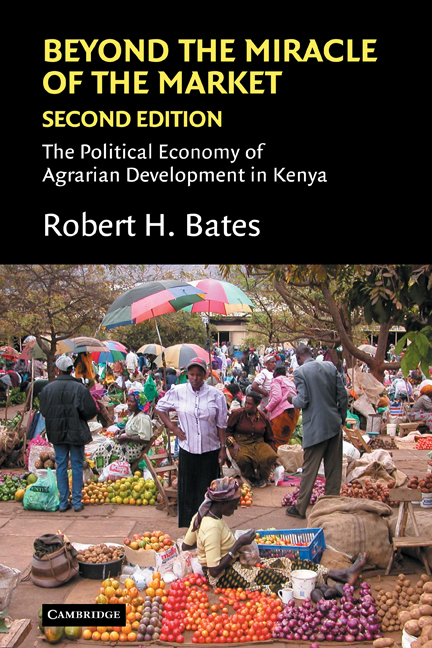The ethical position taken by academics and intellectuals with respect to the objects of their attention – research, theory, intervention – arises from a combination of environmental, institutional, and personal (i.e. political) commitments. When those commitments come into conflict, the ethical positions taken or implied by knowledge producers face the possibility of transformation. And, where globally interconnected lives at both macro- and micro-scopic levels are concerned, the conditions of possibility of change are omnipresent and intense. Arjun Appadurai (2000) summarizes the root of these conditions as a “growing disjuncture between the knowledge of globalization and the globalization of knowledge.”
Continue reading
Tag Archives: culture


Review – Bates, Beyond the Miracle of the Market
Beyond the Miracle of the Market addresses broad questions, among which perhaps the broadest, most enduring has occupied theorists for centuries: Why do some countries succeed where others fail? To answer this in the context of late-twentieth century developing nations, Robert Bates constructs a detailed way of thinking about this central issue in economics, which troubles the very position of the State in its course. Markets, and the institutions that dominate their constituencies, take center stage here, while political and social interests form the supporting apparatus and the lenses through which to examine change in those institutions over time. In this way, Bates approaches the questions of growth, stability, and crisis in developing-nation economies without striking either condescending or dismissive tones, and without mistaking patterns for general truths. Continue reading

Reflection – U.N. Human Development Report 2001
A decade ago, we imagined development in the context of technology as a sprawling task, beset on all sides by uncertainty and ambiguity about the course of global information flows. As evinced by the United Nation’s annual report, policy and the economy together undergirded the activity of development, while a tangle of both instrumental and classical understandings of available data spanned our understanding of the data that impacted those twin pillars. Our ability to comprehend the status of efforts towards development in historical context – and the technological frameworks through which we formed and communicated that comprehension – put world-views at stake for both developers and those becoming-developed. Meanwhile, we left assumptions of the direction of developmental progress untroubled by ongoing global shifts in technological and cultural patterns. Continue reading

Reflection – World Bank Development Report 1998-1999
A decade ago, we imagined technology in the context of development as a duality: challenge and opportunity. The World Bank’s research and rhetoric laid bare the stakes of their development strategy, through which knowledge in its macro-level forms – instrumental and qualitative – could be either directed through technology, or allowed to continue to accrue as an asset for already-well-positioned groups. Their understanding of the relationship between power and governance played a crucial part of this strategy. However, as the implications for policy put forward by the report make clear, this epistemological schema does not inquire after the roots of globalization or the impacts of changing forms of sovereignty. Continue reading

Internet – Lit Reviews – Chun, Nakamura, Gitelman
Three writers who focus on the use and rhetoric of media, rather than on their inherent characteristics or their ethical valences, come together here. Wendy H. K. Chun demands that our attention to the social contexts of emergent technologies center on the political matters of force and sovereignty. Lisa Nakamura draws our attention to myriad, and structural, irruptions of old inequalities as manifested in ostensibly transcendent new media. And Lisa Gitelman pointedly reminds us, through a meticulous and engaging historiography, that what we call ‘new’ in media has older histories than we often care to admit, that all media were new once, and that any divergent practice or technology enters a complex set of other, perhaps related, media, in which nothing can be outgrown, only deprecated. Together, these thinkers provide good scholarship on which further research can be modelled, and provocative questions that demand further thought.
Continue reading